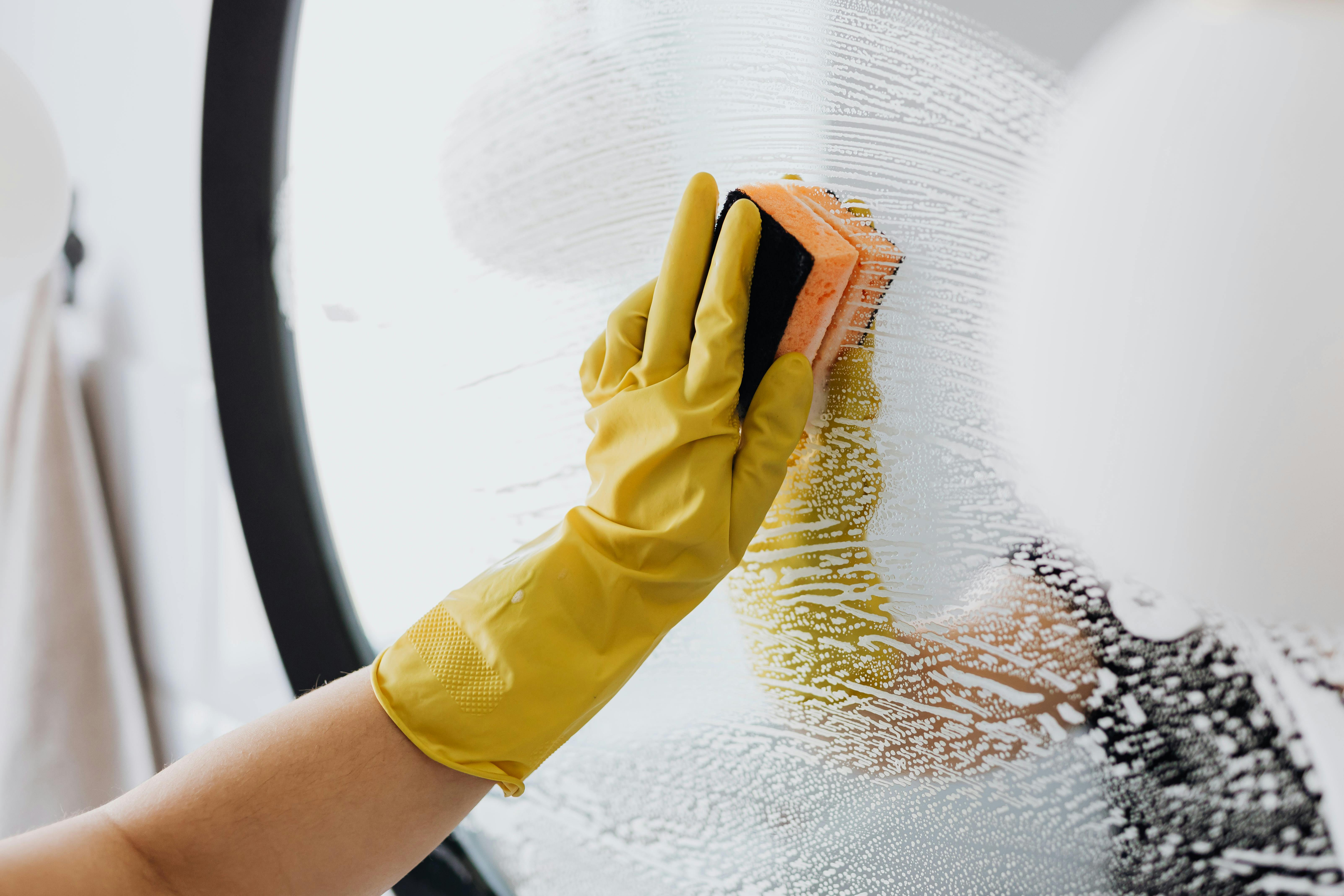Fluoride is an essential mineral for healthy teeth and bones. It can be found naturally in the environment, as well as added to some public water supplies. Unfortunately, too much fluoride can have negative health effects. This is why many people are interested in understanding whether distillers can effectively remove fluoride from drinking water. In this article, we will explore the effectiveness of distillers in removing fluoride from drinking water and discuss their potential risks and benefits.Yes, a distiller can remove fluoride from drinking water. Distillers work by boiling the water and then collecting the vapor that is produced, which leaves behind the contaminants, including fluoride. The steam is then condensed and collected as purified drinking water.
How Does A Distiller Remove Fluoride From Drinking Water?
A distiller is an effective way to remove fluoride from drinking water. It works by boiling water until it produces steam, which is then condensed back into liquid form. The condensed liquid is free of contaminants, including fluoride. This process is known as distillation and it has been used for centuries to purify drinking water. Distillation removes all dissolved solids, including heavy metals and other contaminants, from drinking water. In addition to removing fluoride, distillation also removes bacteria and viruses that may be present in the water.
The process of distillation involves boiling the water until it turns into steam. As the steam rises, it passes through a condenser where it cools down and turns back into liquid form. The resulting liquid is free of any impurities, including fluoride. This means that the distilled water will not contain any traces of fluoride when consumed.
Distillation is a simple and effective way to remove fluoride from drinking water. It does not require any special equipment or chemicals and can be done at home with a few simple steps. Furthermore, dist
What Does A Distiller Remove From Drinking Water?
A water distiller is a device that removes various contaminants from drinking water. It works by heating the water to its boiling point, turning it into steam, and then collecting the steam as it cools and condenses back to liquid form. This process leaves behind many of the impurities found in the original water, such as sediment, bacteria, viruses, heavy metals and chemicals. The result is a clean and pure drinking water free from these contaminants.
Distillers can be used to produce both distilled and deionized water. Distilled water has had all minerals removed, while deionized water has had only certain minerals removed. The choice between the two depends on what type of impurities are present in the original source of water. For instance, if the original source contains high levels of nitrates or heavy metals, then distilled water may be more suitable for drinking.
Additionally, distillers can also be used for producing other products such as essential oils or herbal tinctures. In this case, it is important to note that some volatile organic compounds (VOCs) may be present in
What Is The Best Method To Remove Fluoride From Drinking Water?
Fluoride is a mineral that is naturally found in water and soil. It is beneficial when ingested in small amounts, as it helps to strengthen teeth and bones. However, too much fluoride can be detrimental to health, causing fluorosis, which is discoloration of the teeth and bones. For this reason, it is important to remove excess fluoride from drinking water.
There are several methods of removing fluoride from drinking water. One of the most popular methods is reverse osmosis (RO). This process uses a semi-permeable membrane to filter out contaminants such as fluoride. RO systems are effective at removing up to 95% of fluoride from drinking water.
Another effective method for removing fluoride from drinking water is activated alumina filtration. In this process, aluminum oxide particles absorb the fluoride ions from the water, trapping them within the filter bed. Activated alumina filters are able to remove up to 99% of the fluoride from drinking water.
Ion exchange is also an effective method for removing fluoride from drinking water. In this process, positively charged sodium ions
Is There An Effective Way To Remove Fluoride From Drinking Water?
Many countries around the world add fluoride to their drinking water for various reasons, such as preventing cavities and improving dental health. However, excessive fluoride can be detrimental to one’s health and lead to issues such as fluorosis, or damage to bones or teeth. The good news is that there are effective ways to remove fluoride from drinking water that can help reduce the amount of fluoride in your home’s water supply.
One of the most common methods is reverse osmosis. This process forces water through a membrane and filters out any contaminants, including fluoride. Reverse osmosis systems are highly effective and can remove up to 99% of all fluoride found in drinking water. They also don’t require any chemicals, making them an environmentally friendly option.
Another option for removing fluoride from drinking water is activated alumina filtration. This method uses aluminum oxide granules to absorb the fluoride from the water before it reaches your tap. It is a cost-effective solution and can be used in both residential and commercial settings.
Finally, distillation is also an effective

Different Ways To Remove Fluoride From Drinking Water
Fluoride is a mineral that can be found naturally in many sources of drinking water. It is beneficial for dental health and prevents tooth decay, however, it can also be harmful in large concentrations. There are several different ways of removing fluoride from drinking water, depending on the type of water source and the desired results.
One way to remove fluoride from drinking water is through reverse osmosis filtration. This process involves a special membrane that removes pollutants, including fluoride, from the water by forcing the water through a series of filters. Reverse osmosis filtration can remove up to 95% of fluoride from drinking water but requires a large amount of energy and can be expensive to install and maintain.
Activated alumina filtration is another method for removing fluoride from drinking water. This method uses an aluminum oxide filter to absorb fluoride particles from the water as it passes through. Activated alumina filters are relatively inexpensive and easy to use but may not be capable of removing all types of contaminants from the water.
How Effective Is A Distiller At Removing Fluoride From Drinking Water?
Distillers are highly effective at removing fluoride from drinking water. Distillation is one of the most effective methods of removing fluoride and other contaminants from water. In a distillation process, water is boiled until it evaporates, leaving behind any contaminants that were present in the original water. The resulting steam is then condensed and collected as pure, clean drinking water. This type of filtration system can remove up to 99% of fluoride, as well as other contaminants such as lead, arsenic, nitrates and chlorine. The resulting drinking water is safe for human consumption and free from the potentially harmful effects of fluoride.
However, it is important to note that distillers are not 100% effective at removing all forms of fluoride from drinking water. Some types of fluoride may still be present in the distilled water, depending on the type used in the original water source. It is also important to ensure that the distiller itself is properly maintained and serviced regularly in order to ensure that it continues to function effectively. Regular maintenance will help to extend the life of your distiller and keep
Do Distillers Offer The Most Effective Way To Remove Fluoride From Drinking Water?
Distillation is widely considered to be the most effective way to remove fluoride from drinking water. This process involves boiling water and then condensing the steam back into liquid form, with the dissolved solids remaining behind in the boiling chamber. This leaves you with pure, clean water that is free of contaminants such as fluoride. Distillation can also be used to remove other impurities such as heavy metals, bacteria, and other chemical compounds from drinking water.
The process of distillation is relatively simple and can be done at home with a small countertop distiller. These devices are relatively inexpensive and can be used to produce up to four gallons of pure drinking water per day. The process is quick and efficient, taking just a few hours for a full cycle. It is also energy-efficient since it requires no additional energy beyond that used for heating the water.
The effectiveness of distillation in removing fluoride from drinking water has been extensively studied and documented by researchers. Studies have shown that distillation can reduce fluoride levels by up to 99%. This makes it an

Conclusion
Water distillation is a simple, cost-effective way to remove fluoride from drinking water. The process works by boiling the water and then condensing the steam into a separate container. As the water vaporizes, the fluoride is left behind in the boiling container. This makes it easy to separate out and discard the fluoride-contaminated water.
Distillation has been used for centuries to purify water and provide safe drinking water, and can be a great solution for those looking to reduce their exposure to fluoride from drinking water. However, it’s important to remember that other contaminants may still be present in distilled water, so additional filtration steps may be necessary for complete protection.

